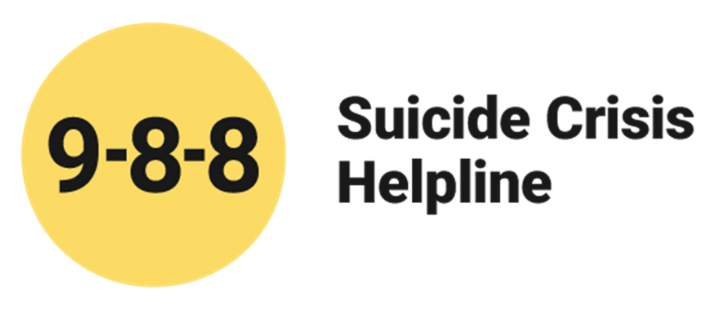Here are some Frequently Asked Questions we get at Here 24/7:
Questions About Here 24/7
How long will I wait for someone to answer the phone?
Typically, Here 24/7 staff answer calls within a few minutes. We try hard to have adequate staff available to meet changing service needs, although predicting when someone may experience a crisis can be hard. There may be some times where you wait more than a few minutes for us to answer. We know this isn’t ideal, and we are always working on ways to reduce how long you wait. If you can’t wait on the phone for us, you will be given an option to leave us a message and we can call you back.
When is Here 24/7 the busiest?
While predicting when a crisis service is the busiest is hard, we do see some trends. Typically we are busiest Monday-Friday, 11am-3pm. We also see a spike in service requests overall in January of each year.
Who can make referrals to Here 24/7?
Anyone can make a referral to Here 24/7. We accept referrals from people looking for services for themselves, family members, healthcare providers, social service providers, and anyone else you can think of. Regardless of where a referral comes from, we’ll always need to talk to the person needing services (or their substitute decision maker) to make sure we get appropriate consent before offering services.
Will my information be shared with third parties for marketing or promotional purposes?
No mobile information will be shared with third parties/affiliates for marketing/promotional purposes. Information sharing to subcontractors in support services, such as customer service is permitted. All other use case categories exclude text messaging originator opt-in data and consent; this information will not be shared with any third parties. Please see our privacy policy linked here Privacy.
Questions About Finding Help
How do I get to see a Psychiatrist?
Psychiatrists are specialist medical doctors who have received specialized training in diagnosis and treatment of mental health conditions (such as psychotherapy and medication treatment). Some work in hospitals or mental health agencies. They may also work on their own in “private practice.” Because physicians are publicly-funded and covered by the Ontario Health Insurance Plan (OHIP), you don’t need to pay any fees to see a psychiatrist, even for those in private practice.
Most psychiatrists in Ontario focus their work on diagnosing various conditions and supporting treatment with medications. If you already have a diagnosis and are not interested in medication, then a psychiatrist might not be the best option for you. Many primary care providers also provide diagnosis of various addictions and mental health conditions and can also support treatment with medications. We always recommend you start by seeing your primary care provider first before seeking a psychiatrist (as most have a wait before you can see them).
Looking for a list of psychiatrists in your area? Unfortunately, because demand for psychiatrists is so high, and they are relatively few, it is very difficult to find any lists of psychiatrists. The best option is usually to contact the College of Physicians and Surgeons of Ontario.
As with most specialists, in Ontario you need to ask your primary care provider (doctor or nurse practitioner) for a referral. If you don’t see a regular primary care provider, you can ask any doctor at a walk-in clinic for a referral.
How do I get to see a Psychologist?
Psychologists assess mental health care needs and provide different therapy or counselling services. This often includes teaching skills that support recovery and improve well-being. Some psychologists specialize in a particular therapy approach, mental health concern or population group. Psychologists cannot prescribe medication.
To find a Registered Psychologist, visit the College of Psychologists of Ontario . You can make an appointment on your own. You don’t need a doctor’s referral to see a psychologist.
Registered Psychologists are not usually covered by the Ontario Health Insurance Plan, unless they are part of a team at a hospital or community addictions/mental health provider, so you’ll have to pay for the cost of the appointment yourself. Workplace extended health benefits or Employee (Family) Assistance Programs may cover some costs. Some psychologists offer a sliding scale based on your income. If you’re facing financial hardship, you can ask when you make the appointment.
How do I get to see a Psychotherapist?
Registered Psychotherapists assess mental health care needs and provide different therapy or counselling services. This often includes teaching skills that support recovery and improve well-being. Some psychologists specialize in a particular therapy approach, mental health concern or population group. Psychotherapists cannot prescribe medication.
Not just anyone can call themselves a psychotherapist anymore. As of December 31, 2019, performance of the controlled act of psychotherapy is restricted to members of the following regulatory colleges:
- The Ontario College of Social Workers and Social Service Workers
- The College of Nurses of Ontario
- The College of Occupational Therapists of Ontario
- The College of Physicians and Surgeons of Ontario
- The College of Psychologists of Ontario
- The College of Registered Psychotherapists of Ontario
Here 24/7 does not provide recommendations on psychotherapists. We tend to recommend you search for your specific needs using the links above, or by visiting Psychology Today’s directory. You can make an appointment on your own and you don’t need a doctor’s referral to see a psychotherapist.
Registered Psychotherapists are not usually covered by the Ontario Health Insurance Plan, unless they are part of a team at a hospital or community addictions/mental health provider. You’ll have to pay for the cost of the appointment yourself. Workplace extended health benefits or Employee (Family) Assistance Programs may cover some costs. Some psychotherapists offer a sliding scale based on your income. If you’re facing financial hardship, you can ask when you make the appointment.
Questions About Addictions and Mental Health Issues or Conditions
Where can I find information about addictions or mental health issues or conditions?
There is a wide variety of information available on addictions and mental health issues or conditions. Here are some places that offer credible information:
Questions About The Addictions and Mental Health System
What’s the difference between an addictions/mental health CRISIS and an addictions/mental health EMERGENCY
What is an Addictions/Mental Health CRISIS
An addiction and/or mental health crisis often means that you no longer feel able to cope or be in control of your situation. You may feel overwhelming emotional distress or anxiety, cannot cope with day-to-day life or work, think about suicide or self-harm, increase your use of substances, feel like everyone is out to get you, or experience hallucinations and hearing voices. A crisis can be the result of an underlying addiction or mental health condition, a medical condition, an overdose, use of illicit drugs or intoxication with alcohol, or a stressful life circumstance/situation.
Examples of addiction and/or mental health crisis can include:
- Talking about suicide or not wanting to go on
- Talking about threatening behavior or wanting to hurt others
- Self- injury, but not needing immediate medical attention
- Increased or higher risk alcohol or substance abuse
- Highly erratic or unusual behavior
- Not eating or eating all the time, rapid weight loss or gain
- Not taking prescribed psychiatric medications
- Isolating from friends and family
- Emotionally distraught, very depressed, angry or anxious
If you or a loved one experiences these signs, see your doctor right way, or call Here 24/7. We can help you make a plan for what to do next.
What is an Addictions/Mental Health EMERGENCY
An addiction and/or mental health emergency is a life threatening situation where you are at risk of acting on suicidal thoughts, thoughts of harming others, are severely disorientated or out of touch with reality, are really struggling to take care of your own basic needs (e.g. bathing, eating, tending to your health). An emergency can be the result of an underlying addiction or mental health condition, a medical condition, an overdose, use of illicit drugs or intoxication with alcohol, or a stressful life circumstance/situation.
Examples of addiction and/or mental health emergency can include:
- Acting on suicidal thoughts or preparing to act on them
- Acting on a desire to hurt others or preparing to act on them
- Self- injury needing immediate medical attention
- Experiencing sensations that aren’t real and/or beliefs that can’t possibly be true
- Overdose on alcohol or substances (accidental or deliberate)
- Experiencing serious side effects from medications
- Highly erratic or unusual behavior that is putting you or others at risk
- A rapid change in your ability to take care of yourself (e.g. bathing, eating, tending to your health) that is putting you at risk of serious harm.
- Making choices that put you in serious danger
If you or a loved one experiences these signs, see your doctor right way, or call 911 or go to the nearest emergency room. If you call 911, don’t leave anyone alone before emergency responders arrive.
Not sure which one it is?
If you’re not sure whether you’re experiencing a crisis or an emergency, give us a call. We can help you figure that out and make a plan of what to do next.
Why do I have to wait for services?
We know waiting for ongoing addictions and mental health services is incredibly challenging. All of our partners are working hard to try and serve everyone who reaches out for help.
Unfortunately, there are some services that are at capacity or over capacity and do require you to wait before you can get to them. Most services for complex addictions and mental health require you to have a formal assessment before you can access them so that we can match services to your unique needs. We can also refer you to some services that are available across Ontario where wait times might be shorter or the service would better meet your needs (e.g. Residential Addictions Treatment).
There are some services that are available that never have a wait time. If you’re experiencing a crisis or emergency, there’s also no wait for care. Just give us a call and we can talk about what options might be best for you.


 CMHA Waterloo Wellington, the lead agency for Here 24/7 is a proud partner in 9-8-8 Suicide Crisis Helpline.
CMHA Waterloo Wellington, the lead agency for Here 24/7 is a proud partner in 9-8-8 Suicide Crisis Helpline.